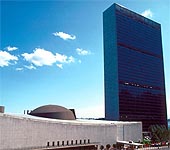 Just last week, I reported on guidelines newly issued by the Office of Foreign Assets Control (“OFAC”) relating to the use of blocked assets to pay attorneys fees to challenge orders blocking those assets. And I was more than a little critical of the absurd limits that OFAC put on attorneys fees that could be paid from blocked assets as well as OFACs express justification of the policy on the grounds that lawyers make it harder for OFAC to do what it wants to do. Specifically, OFAC said — if you can believe it — this:
Just last week, I reported on guidelines newly issued by the Office of Foreign Assets Control (“OFAC”) relating to the use of blocked assets to pay attorneys fees to challenge orders blocking those assets. And I was more than a little critical of the absurd limits that OFAC put on attorneys fees that could be paid from blocked assets as well as OFACs express justification of the policy on the grounds that lawyers make it harder for OFAC to do what it wants to do. Specifically, OFAC said — if you can believe it — this:
This policy is not intended to ensure complete compensation to counsel. Limitations on the amount of funds released to a Blocked Party are necessary to preserve the President’s authority and leverage in the conduct of foreign policy
And I predicted that this statement might come back to haunt OFAC if any lawyers were ever able to challenge the policy notwithstanding OFAC’s efforts to make that as difficult as possible.
Well, it would seem that this day may have come. An article in the New York Times reports that lawyers who are attempting to file a lawsuit on behalf of Anwar al-Awlaki have filed suit to challenge an OFAC requirement that the lawyers obtain an OFAC license prior to filing the lawsuit on behalf of Mr. al-Awlaki even if the lawyers are acting pro bono, i.e., without compensation. Anwar al-Awlaki was added to OFAC’s SDN list on July 10, making him one of the few Americans on that list. Among other things, al-Awlaki is alleged to have been the mastermind behind the failed Christmas Day bombing attack on a commercial jetliner headed for Detroit.
Under existing regulations, found in 31 C.F.R. § 594.506, some legal services can be provided to specially designated global terrorists without a license. But none of the services authorized under section 594.506 are involved in al-Awlaki’s case. The lawyers are seeking to file suit on his behalf to challenge an alleged administration order making al-Awlaki subject to extrajudicial execution.. And although the regulations permit lawyers to initiate legal proceedings “in defense of property interests subject to U.S. jurisdiction,” there is no provision permitting lawsuits to defend al-Awlaki from extrajudicial execution or loss of non-property rights.
The lawyers had requested a license from OFAC, which had not been granted, so the lawyers filed suit challenging the license requirement itself. The money quote from the complaint is this:
The same government that is seeking to kill Anwar al-Awlaki has prohibited attorneys from contesting the legality of the government’s decision to use lethal force against him
I am inclined to believe that al-Awlaki is probably a dangerous terrorist, a loathsome individual, and a threat to humankind. Still, everyone, no matter how loathsome, deserves legal counsel. It’s one of the bedrock principles that differentiates us from our enemies; and if we abandon those principles in any instance, then we are on the path to becoming no better than those against whom we fight.
Having finished my inspirational Atticus Finch speech in the previous paragraph, I should note that what’s involved in the al-Awlaki matter is somewhat different from the issues raised by the OFAC guidelines on using blocked funds to pay for legal representation. Here the lawyers, who are provided by the ACLU and the Center for Constitutional Rights, are not seeking any compensation, much less compensation from any of al-Awlaki’s blocked funds (assuming that any even exist). A judicial determination that OFAC cannot block right to counsel in this situation will not necessarily mean that there are constitutional or other legal problems with the agency setting limits on hourly fees — even the paltry fees permitted under the current blocked asset guidelines. Still, OFAC’s unabashed admission in the blocked fund guidelines that lawyers diminish the President’s “leverage” in the conduct of foreign affairs is not likely to help the governments case in defending any power by OFAC to deny American citizens the right to counsel.
OFAC has, it seems, two options here. It could issue the licenses to moot the ACLU challenge to the OFAC rules at issue and allow the Anwar al-Awlaki suit to proceed. Or it could double down and argue that the suit challenging OFAC’s rules is, in effect, a suit on behalf of al-Awlaki in violation of OFAC’s rules and start a penalty proceeding against the lawyer-plaintiffs. Speculation on what OFAC might do here is welcome in the comments section.
UPDATE: Doug Jacobson notes in the comments section that CCR and ACLU issued a press release tonight indicating that they had received a license from OFAC but would continue to press their suit that the license requirement is unconstitutional.

 Posted by
Posted by  Category:
Category: 

 The Department of Treasury’s Office of Foreign Assets Control (“OFAC”) last week
The Department of Treasury’s Office of Foreign Assets Control (“OFAC”) last week  The latest monthly
The latest monthly  House and Senate conferees
House and Senate conferees  Commercial computer security firm Sophos
Commercial computer security firm Sophos 

